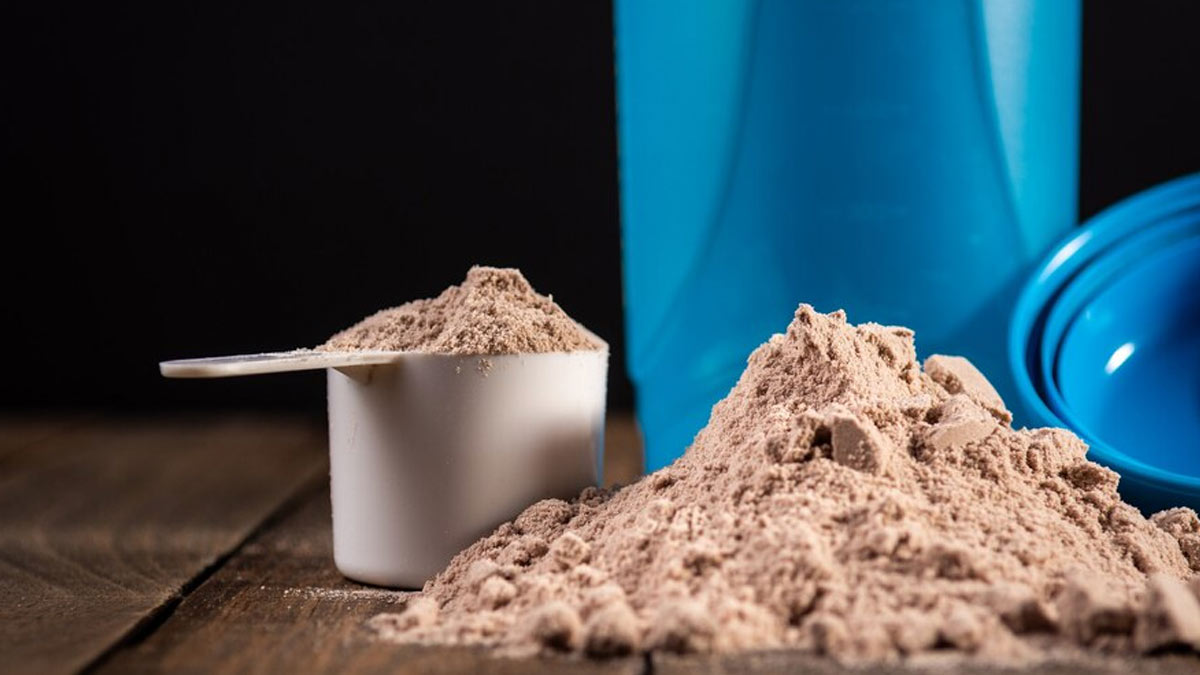
Protein powders are commonly used nutritional supplements, often favoured by those looking to build muscle or manage their weight. But does consuming protein powder increase uric acid levels? Protein is an essential macronutrient necessary for strong bones and muscles. However, the type and amount of protein consumed can influence its impact on your health. To better understand this, we spoke to Dr Anusha Gudipati, DNB Nephrology, Consultant Nephrologist, Asian Institute of Nephrology and Urology, Dilsukhnagar, Hyderabad, who shared her insights on this topic.
Table of Content:-
Understanding Uric Acid And Purine Metabolism

Uric acid results from purine metabolism, and consuming purine-rich foods raises uric acid levels. A high-protein diet is usually high in purines. According to the Arthritis Foundation, uric acid levels are generally considered elevated when they exceed 7 milligrams per deciliter (mg/dL) for men and 6 mg/dL for women. Levels below 2 mg/dL are classified as low uric acid.
How Does Protein Affects Uric Acid Levels?

“Proteins are nitrogen-based compounds. Once digested, the nitrogen in protein is processed by the liver and converted into urea and uric acid. Normally, urea and uric acid are filtered out of your bloodstream by your kidneys and flushed out of your body in urine,” said Dr Gudipati. However, consuming high amounts of protein may lead to an excess of uric acid, potentially resulting in a buildup in the body. This can be problematic for individuals already at risk of developing conditions, such as gout or hyperuricemia (elevated uric acid levels).
As per a study published in Nutrition, Metabolism and Cardiovascular Diseases Journal in 2012, consumption of animal protein was found to be associated with a higher prevalence of hyperuricemia. On the other hand, eating soy products was associated with a lower prevalence of hyperuricemia.
Also Read: 10 Ayurvedic Herbs To Control Uric Acid And Alleviate Joint Pain
Impact of Different Protein Types on Uric Acid
Whey Protein

“Whey protein is a milk-derived protein frequently used as a dietary supplement. This protein is rich in essential amino acids and is considered to be high-quality. While whey protein itself does not contain purines, studies on the effect of whey protein specifically on uric acid levels have been inconclusive,” said Dr Gudipati.
Plant-Based Protein
Proteins derived from plant sources, such as soy protein, brown rice protein, and pea protein, are good sources of essential amino acids and are generally low in purines. This makes them a preferable option for individuals seeking to manage their uric acid levels, as they are less likely to cause an increase.
Also Read: Essential Tips To Choose The Right Protein Powder For Your Fitness Goals
Animal Protein
Animal-based proteins, especially those found in meats, particularly organ meats, are high in purines. Consuming these types of proteins can lead to an increase in uric acid levels, potentially triggering conditions, such as gout. Therefore, limiting the intake of high-purine animal proteins can be beneficial for maintaining healthy uric acid levels.
Bottomline
Dr Gudipati concluded, “it's important to be mindful of how different types of proteins can influence uric acid levels. Animal-based proteins, such as meat, fish, and poultry, tend to be high in purines, while plant-based proteins, such as those from soy, brown rice, and peas, are low in purines and are less likely to contribute to elevated uric acid levels. So, whether protein powder increases uric acid levels is partially a myth and partially a fact. It all depends on the amount and type of protein supplements you take. Anything taken in excess is harmful.”
[Disclaimer: This article contains information provided by an expert and is for informational purposes only. Hence, we advise you to consult your own professional if you are dealing with any health issues to avoid complications.]
Also watch this video
How we keep this article up to date:
We work with experts and keep a close eye on the latest in health and wellness. Whenever there is a new research or helpful information, we update our articles with accurate and useful advice.
Current Version